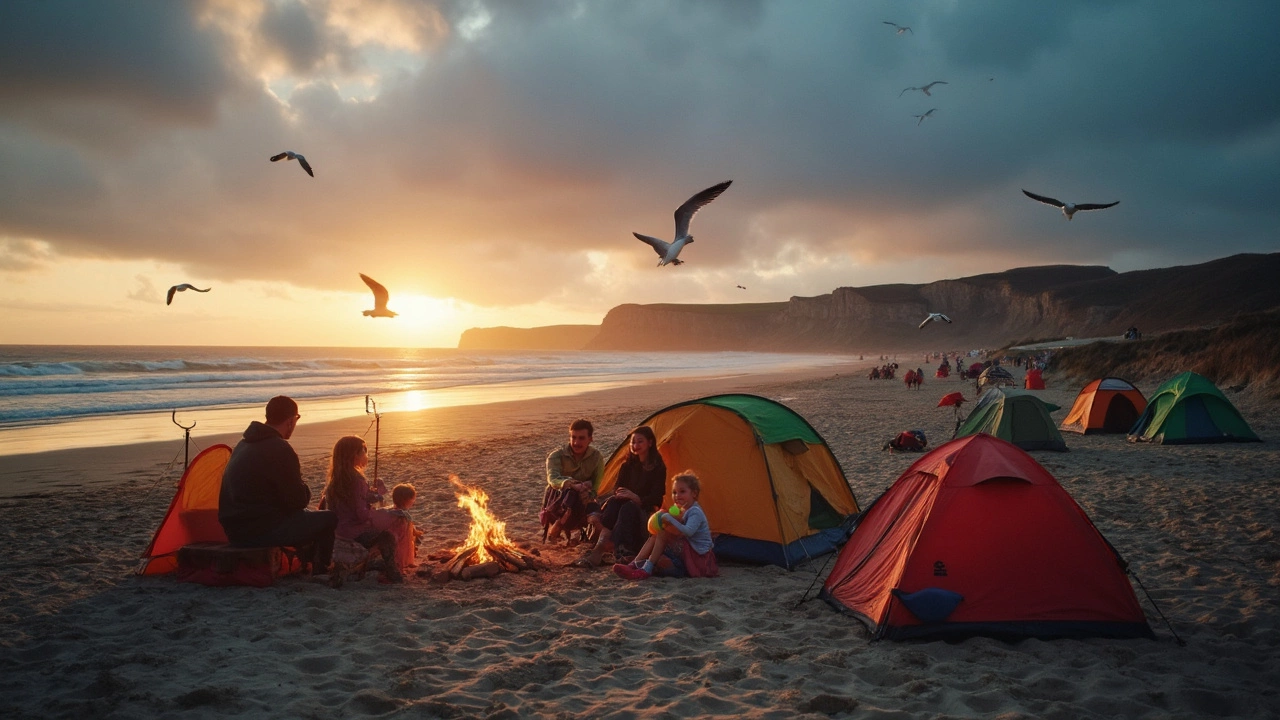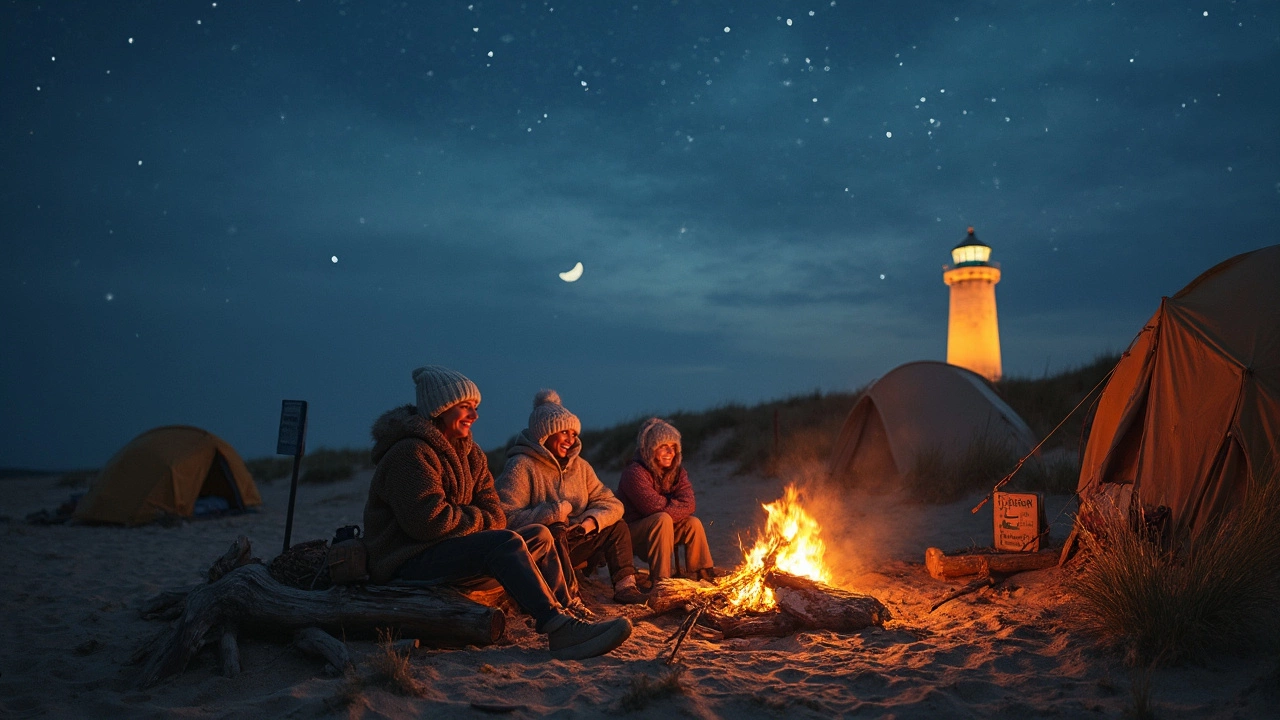Coastal Camping Tips: Easy Ways to Camp Safely on the UK Shoreline
Nothing beats waking up to waves crashing right outside your tent. But camping by the sea can get tricky if you don’t know the basics. Below are the must‑know tips that keep you safe, legal, and comfortable while you soak up the salty air.
Pick the Right Spot and Stay Legal
First thing – check if the beach allows overnight stays. Many local councils publish free or low‑cost campsites on their websites. If you’re unsure, look for signs that say “No camping” or “Wild camping prohibited.” When in doubt, head to a designated campsite; they usually have basic facilities and you avoid a fine.
If you spot a free spot that looks unused, walk around the perimeter to make sure there’s no private property or protected wildlife area. Keep a respectful distance from dunes, nesting birds, and tidal zones – they’re often marked with signs or painted stones.
Set Up for Weather and Tides
Coastal weather changes fast. Bring a sturdy tarp to keep rain off your gear and to create a windbreak. Anchor the tarp using sandbags or heavy rocks; sand can shift, so check your setup after a bout of wind.
Know the tide times for your location. Low tide reveals a wide stretch of sand, giving you space to spread out. High tide can flood low‑lying spots in minutes, so position your tent on higher ground and keep valuables off the sand.
Use a compact, sand‑proof sleeping pad. Regular foam pads can get soggy and lose insulation. A closed‑cell foam pad stays dry and adds a bit of comfort.
Leave No Trace – Protect the Coastline
Pack out everything you bring in: food wrappers, plastic bottles, and even toilet paper. If you need to use the bathroom, dig a shallow cat hole at least 30 cm deep and 15 m away from the waterline. Cover it up when you’re done.
Avoid campfires on most beaches – they’re a fire risk and many areas ban them outright. Use a portable gas stove for cooking; it’s cleaner and quicker. If a fire is allowed, keep it in a sand pit, never leave it unattended, and fully extinguish it with sand before you leave.
Practical Gear for Seaside Comfort
Bring a dry‑bag for electronics, clothing, and food. Salt spray can ruin a phone or camera in minutes. A quick‑dry towel and a change of dry clothes are lifesavers after a splash or a rainy night.Headlamps with extra batteries are essential – darkness falls early on the coast. A battery‑powered fan can circulate air inside a tent on hot summer evenings.
Finally, keep a simple first‑aid kit and a whistle. If you get lost or a situation escalates, it’s better to be prepared.
Coastal camping is all about balance – enjoy the sea, respect the environment, and stay safe. Follow these tips and you’ll turn a simple night on the beach into a memorable adventure you’ll want to repeat.
-
 VIEW POST
VIEW POSTBeach Camping: Why People Love Sleeping Beside the Waves
Jun, 26 2025|0 CommentsDiscover why beach camping is so popular. Get insider tips, fun facts, pros and cons, and real-life inspiration for your next coastal camping trip. -
 VIEW POST
VIEW POSTCan You Camp on Public Beaches in the UK? Everything You Need to Know
Apr, 27 2025|0 CommentsThinking of sleeping under the stars on a UK beach? The rules are trickier than they seem. This article explains the legal ins and outs of camping on public beaches, shares practical tips to avoid fines or trouble, and highlights cool beach spots where camping might be possible. Get the facts, avoid the pitfalls, and learn how to make your UK beach camping dream a reality—if you know how to do it right.